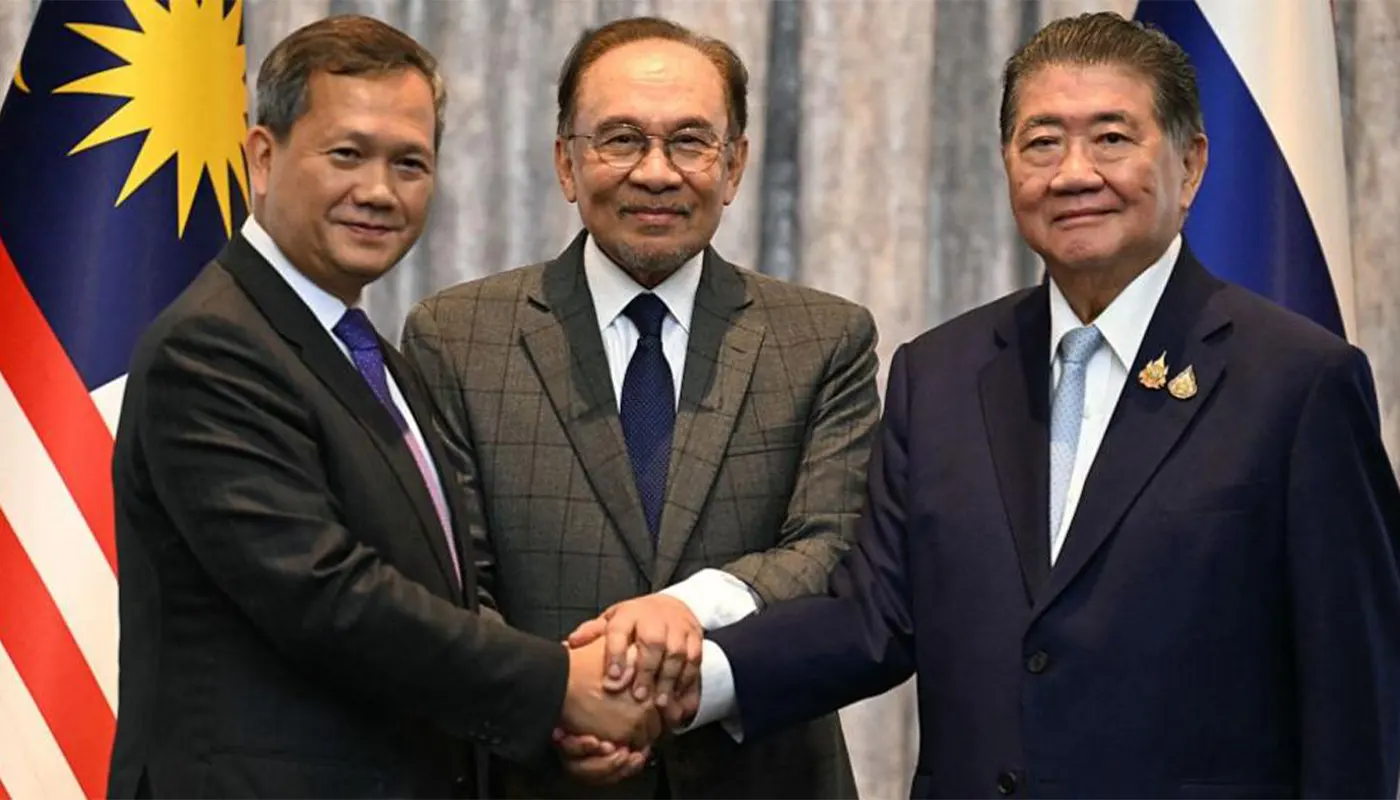PUTRAJAYA – In a significant breakthrough, leaders of Thailand and Cambodia have agreed to an immediate and unconditional ceasefire starting at midnight local time (00:00, 28 July 2025), following high-level talks mediated by Malaysian Prime Minister Anwar Ibrahim, currently chair of ASEAN.
The agreement came after five days of intense fighting along the countries’ 800‑km border that left at least 35–36 people dead, displaced 200,000 to over 300,000 civilians, and included artillery barrages, air raids, and mutual accusations of aggression.
Malaysia’s Anwar Ibrahim described it as “a vital first step towards de‑escalation and the restoration of peace and security.” He also announced plans for subsequent meetings involving regional commanders on July 29, defence attachés, and a General Border Committee meeting on August 4 in Cambodia to oversee implementation and accountability.
Acting Thai Prime Minister Phumtham Wechayachai affirmed Thailand’s commitment to carry out the ceasefire in “good faith,” while Cambodian Prime Minister Hun Manet expressed hope the agreement sets conditions for rebuilding bilateral trust and enabling the return of displaced civilians.
International actors played a pivotal role in brokering the agreement: U.S. President Donald Trump reportedly warned of halting trade deals unless hostilities ceased, while both the United States and China were involved in facilitating the dialogue, with U.S. Secretary of State Marco Rubio urging compliance from both governments.
As of now, the ceasefire marks a hopeful turning point in the conflict, though observers note its durability will depend on ASEAN-led monitoring efforts and both sides’ adherence to the agreed mechanisms.





